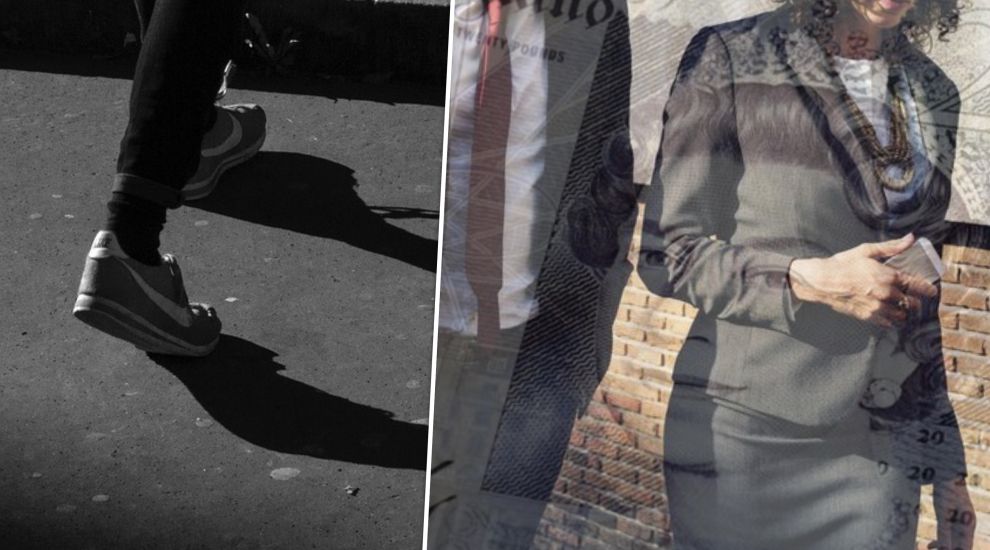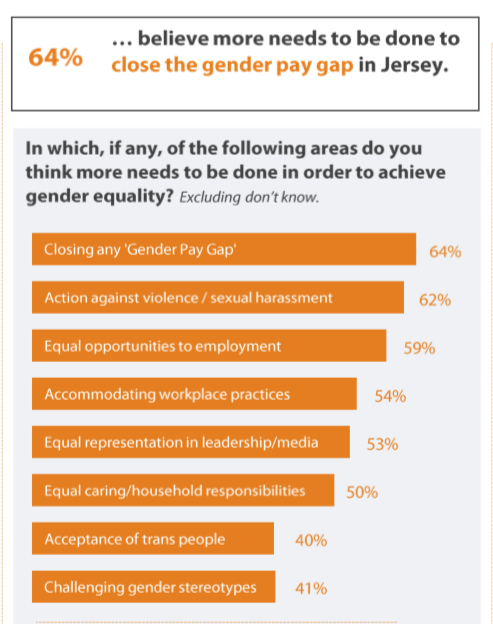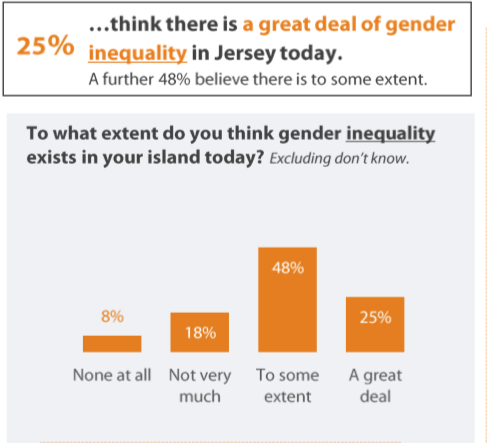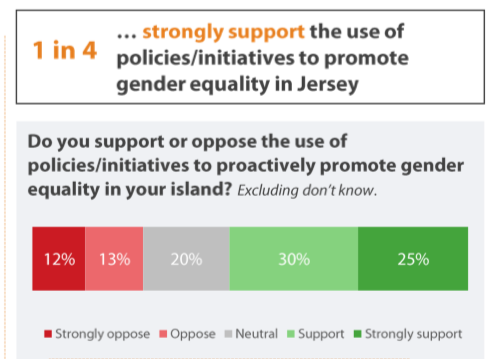


Nearly two thirds of islanders responding to a survey have said more needs to be done to tackle sexual harassment and the pay gap between men and women in Jersey.
64% of the 560 local respondents to Island Global Research's survey wanted more action to bridge the divide between men and women's pay to achieve gender equality.
A similar proportion (62%) felt more action was needed to stamp out violence and sexual harassment, while 59% wanted to see more equal employment opportunities.

Pictured: 64% of the 560 local respondents said more needs to be done around the gender pay gap to achieve gender equality.
Figures recently released by the Government showed that women continue to make up the majority of the Government’s workforce, but are earning less on average than their male counterparts.
According to latest Gender Pay Gap report, the median gender pay gap - which shows the difference between the average earnings of men and women, but does not measure the difference in pay between men and women doing the same job – was 23.1% in 2020. This was an increase from 2019 when it was at 18.3%.
According to the survey's respondents, workplace practices, equal representation in leadership and media, equal household responsibilities, acceptance of trans people and gender stereotypes are the other areas where more work is needed.

Pictured: One in four respondents believes there is a "great deal" of gender inequality in Jersey.
A quarter of respondents expressed the belief that there is “a great deal” of gender inequality in the island.
Over a third of respondents under the age of 40 said there is a great deal of gender inequality, but that proportion dropped to 23% among those aged 40 to 64 and to 17% for those over 65.
Meanwhile, 13% of male and 3% of female respondents said there is no gender inequality.
Nearly two thirds of respondents (65%) said they support the use of policies and initiatives aimed at promoting gender equality, while 12% said they strongly opposed them.
One in five respondents said they were neutral.

Pictured: 12% of respondents said they strongly opposed policies and initiatives aimed at promoting gender equality.
In the comment section, some respondents called for women to be considered as individuals on their tax form, which will finally happen next year.
Others called for more on men’s issues, including mental health, father’s rights and violence against men as well as equal parent leave and flexible working for both parents.
“Women have more rights than men, men are ignored,” one commented.
Several respondents also raised the issues of sexual harassment and domestic violence which have been in the spotlight recently.
“Violence against women is still a huge issue and sentencing is nowhere near the stringency it needs to be,” one respondent wrote.
Jersey’s results were similar those seen in Guernsey, where 949 residents took part.
The team at IRG explained that it followed “considerable media attention on gender issues” after the publication of a letter in local media arguing in favour of traditional gender roles.
“In our view, the interest and debate that followed the letter demonstrates the need for surveys, such as this one, which elicit public opinion on social and cultural issues,” they said.
“We would also add that there is no evidence the media attention led to any bias in the results – at least the findings for Guernsey and Jersey are very similar.”
Comments
Comments on this story express the views of the commentator only, not Bailiwick Publishing. We are unable to guarantee the accuracy of any of those comments.